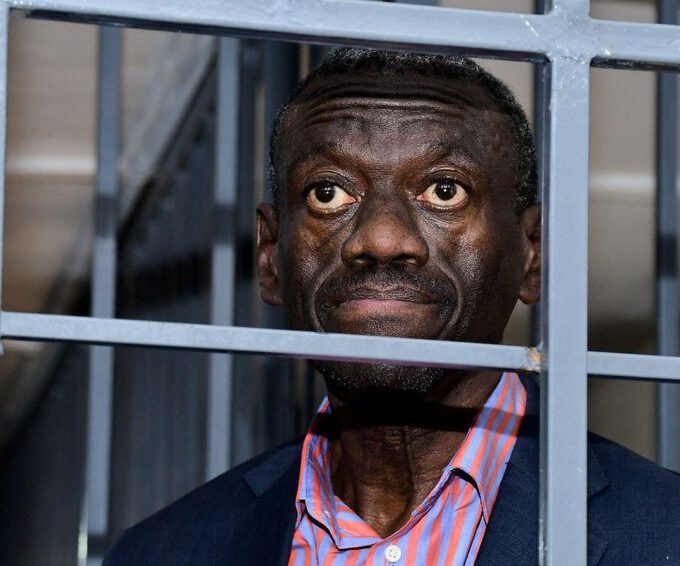Dr. Kizza Besigye, a four-time Ugandan presidential candidate and a prominent opposition figure, has once again captured national attention by calling for a non-violent struggle to achieve political transformation in Uganda. Speaking from Luzira Prison, where he is currently detained on treason-related charges, Besigye’s message resonates with a population long accustomed to political turbulence, state repression, and cycles of contested elections. His advocacy for non-violent resistance marks a significant evolution in Uganda’s opposition politics and offers a blueprint for a more inclusive and sustainable path toward democracy.
The Context of Besigye’s Message
Besigye’s latest call comes at a critical juncture. Uganda’s political environment remains tense, with President Yoweri Museveni’s administration, in power since 1986, facing increasing criticism for its authoritarian tendencies, human rights abuses, and suppression of dissent. The aftermath of the 2021 general elections saw a deterioration in civil liberties, with widespread reports of arbitrary arrests, extrajudicial killings, and the stifling of opposition voices.
It is against this backdrop that Besigye, now serving as Chairperson of the Council of Eminent Persons in the newly formed People’s Front for Freedom (PFF), addressed supporters at the party’s inaugural National Convention. His pre-recorded message from prison was both a rallying cry and a strategic directive for Uganda’s pro-democracy movement.
The Rationale for Non-Violent Struggle
Besigye’s argument is rooted in a clear-eyed assessment of Uganda’s history. He acknowledges that the armed struggle that brought Museveni to power—the Bush War—did remove a dictator but failed to establish a system that truly empowers citizens. According to Besigye, the goal must be more ambitious than simply ousting an individual leader; it must involve replacing dictatorship with a system that guarantees people’s power, control over institutions, resources, and information.
He draws a sharp distinction between violent and non-violent methods, noting that while both can be effective, non-violent struggle minimizes casualties and societal trauma. “The use of non-violent struggle is as potent as armed struggle, but there are fewer casualties and loss of lives,” Besigye asserts. He emphasizes that non-violence does not equate to passivity or peace at all costs; rather, it is a disciplined, organized, and confrontational approach that seeks accountability and justice without resorting to arms.
Building a Movement: Steps and Challenges
Besigye’s vision for the People’s Front for Freedom centers on mass mobilization and civic education. He urges Ugandans to embrace non-violent methods such as defiance, civil disobedience, and peaceful protest to demand better governance and service delivery. The movement, he argues, must begin with a shift in mindset—Ugandans must recognize their power as citizens and overcome fear and resignation.
Key elements of the strategy include:
- Sensitizing the masses about their rights and the power of non-violent resistance.
- Building national consciousness to dismantle the entrenched authoritarian system.
- Fostering unity among opposition groups and civil society to present a cohesive front.
- Maintaining discipline and commitment to non-violence, even in the face of provocation or repression.
Besigye also cautions that the road ahead will be difficult, requiring resilience and sacrifice. He points to the government’s record of heavy-handed responses to protest and dissent, as well as the personal risks faced by activists, including arbitrary detention and violence.
Reactions and Broader Implications
Besigye’s message has been widely circulated among opposition circles and civil society organizations, many of which have rallied for his release and echoed his call for non-violent action. Recent protests in Nairobi, organized to demand his freedom and that of other political detainees, were notably peaceful and facilitated by Kenyan authorities—an example Besigye’s supporters hope to replicate in Uganda.
The international community has also taken notice. Human rights organizations and foreign governments are increasingly vocal about the need for Uganda to respect civil liberties and allow space for peaceful political engagement.
Conclusion
Dr. Besigye’s call for a non-violent struggle represents a pivotal moment in Uganda’s ongoing quest for genuine democracy. By advocating for disciplined, peaceful resistance, he offers a powerful alternative to the cycle of violence and repression that has characterized much of the country’s post-independence history. Whether Ugandans will heed this call and whether the government will allow space for such a movement to flourish remain open questions. What is clear, however, is that Besigye’s vision has reignited hope for a more just, inclusive, and democratic Uganda.

